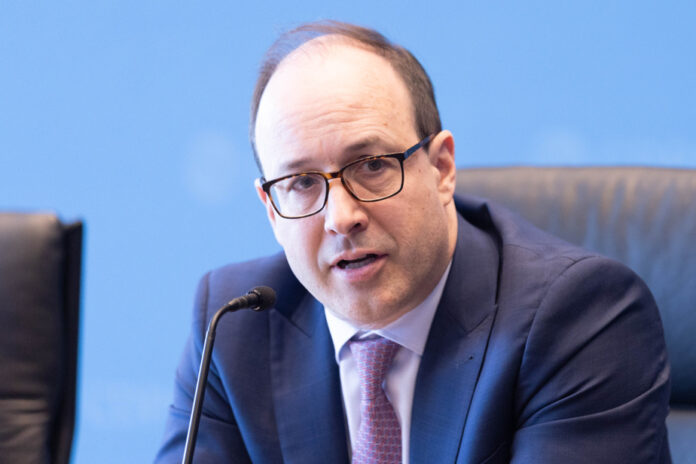Controversial investment in security company Allied comes back to haunt the Caisse de depot et placement du Quebec
In a parliamentary committee on Tuesday, the boss of the Caisse, Charles Emond, had to answer questions from the deputy for Maurice-Richard, Haroun Bouazzi, about the participation of the Allied company in Policity Corporation in Israel. This entity operates a police academy which trains prison guards whose actions are denounced by non-governmental organizations. La Caisse has been an Allied shareholder since 2019.
“Cases of torture against Palestinian political prisoners, including children, are widely documented by human rights organizations,” said MP Bouazzi, before asking Mr. Emond to justify the continued investment in this company
“I completely agree with you,” replied the number one of the Fund. This is not the kind of activity that we subscribe to at all. […] There is no materiality threshold on our side. As soon as there are activities like that, even a single case, we put it on the agenda and we put pressure on the company where we have 2 directors out of 11 on the board. [Allied] is a private placement, we could not sell immediately as on the stock market for a listed company. We have 28% [of the shares], so we are in the minority. »
Mr. Emond recalled that the Caisse had invested in Allied in February 2019 before it acquired G4S. Allied now owns a 25% stake in Policity through G4S. The partner is a local business. He also pointed out that Policity was a lightweight at Allied, accounting for less than $5 million in annual revenue.
The Caisse’s senior management reported on its management to elected officials as part of the Québec government’s annual credit study.
This is not the first time that the investment in the firm Allied has placed the Caisse in a delicate position.
In a file published in June 2020, La Presse had exposed the many risks incurred by the woolen socks of Quebecers by partnering with an American private security firm, a competitor, moreover, of the Quebec company GardaWorld. The Caisse also has a mandate to contribute to the economic development of Québec1.
It reported on a lawsuit filed by a black person against four Allied agents who beat her two years earlier at a Denver commuter train station, where the agents worked for the account of the regional transport company. At the time, the Caisse had defended its investment without reservation.
Barely a few months later, the boss of GardaWorld, Stéphan Crétier, accused the Caisse of harming him in his efforts to acquire G4S. It was Allied who finally got hold of G4S. It is extremely rare for a Quebec leader to publicly criticize the Quebec institution2.
The investment in Allied was steered by the private placements outside Quebec team led in London by Stéphane Etroy, a high-level executive who was paid a fortune, more than anyone at the Caisse in 2018, including the great boss Michael Sabia. Mr. Etroy worked at the Caisse from 2015 to 2019. That year, he was entitled to an annual bonus of 1.9 million even though his departure had been announced before the end of the financial year.
It is also Mr. Etroy who is responsible for the Caisse’s investment in Clarios, a recycler of automobile batteries which is suspected of having contributed to lead contamination in the vicinity of its Mexican factories. After the arrival of the Caisse among its shareholders in 2019, Clarios closed its American factory to transfer activities to Mexico, where environmental standards are lower and less respected than in the United States. The case was featured in a New York Times report this year. The Caisse said last March that it was in conversation with Clarios on this subject3.















